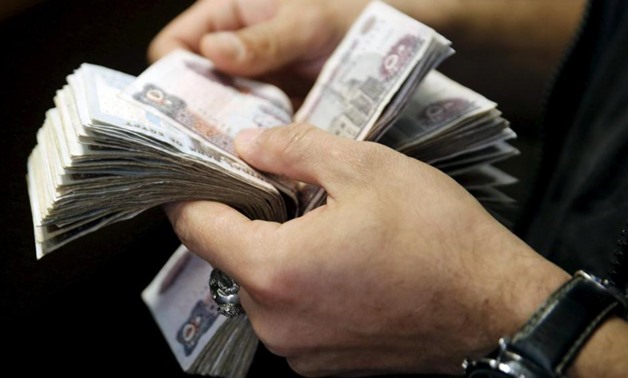
Egyptian currency - Reuters
CAIRO - 16 July 2018: Yields on Egypt’s three and nine-month treasury bills fell at an auction on Sunday, bucking a trend of rising rates in recent weeks fuelled by what bankers have described as an exit of foreign investors from Egypt’s debt market.
Egypt’s short and long-term debt yields have been climbing since April, hitting their highest rates this month in roughly a year. Bankers and economists have attributed the rising yields to lower participation among foreign buyers.
They estimate that up to $5 billion in foreign portfolio investment has left Egypt since May amid a broader global selloff in emerging markets, though the government has yet to release data for this period.
The average coverage ratio for treasuries, a measure of participation in debt auctions, dropped to its second lowest level in June since Egypt’s pound currency was floated in late 2016, a research report from Cairo-based investment bank Pharos Holding said on Sunday.
Yields at Sunday’s auction nevertheless fell for the first time in about a month for their respective tenors, according to central bank data.
The 91-day bill rates declined to 19.364 percent from 19.69 percent at the last similar auction on July 8, while the 266-day yields decreased to 19.422 percent from 19.68 percent.
The auction saw higher participation than in recent weeks but there was no breakdown available between local and foreign buyers.
Egypt last year became one of the world’s hottest destinations for portfolio investors after its yields soared to about 22 percent, the result of aggressive central bank rate hikes aimed at curbing inflation.
Total foreign holdings in Egypt’s treasuries hit $23.1 billion at the end of March according to finance ministry data, up from less than $1 billion in late 2016, when the country kicked off a sweeping three-year $12 billion IMF loan programme to lure back investors that fled after its 2011 uprising.
The central bank began easing rates earlier this year however, cutting them by 200 basis points as inflation has cooled off.
Comments
Leave a Comment